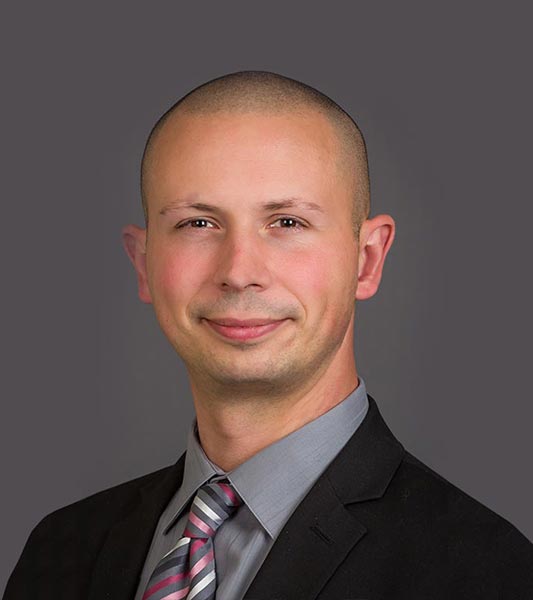 Al Pascual has a passion for righting wrongs, so he chose banking and payments fraud as his field of practice. Yet, it’s something more than a professional interest. It’s in his blood.
Al Pascual has a passion for righting wrongs, so he chose banking and payments fraud as his field of practice. Yet, it’s something more than a professional interest. It’s in his blood.
Growing up as the son of two NYPD detectives, law enforcement was always a topic of conversation at dinner. “My parents didn’t want me to become a police officer – there was too much of a danger element,” Pascual said. “But there was still something I liked about order and helping people and righting wrongs. I had a number of friends who went into banking, and I followed suit, but on the risk mitigation and fraud side.”
As co-founder and chief operating officer of Breach Clarity, Pascual joined the Federal Reserve’s Secure Payments Task Force to lend his expertise in both fraud prevention and translating the complexities of fraud to an audience of business professionals. This experience includes fraud operations roles for HSBC, Goldman Sachs and FIS.
An important lesson Pascual has learned is to put fraud into context for business professionals. Simply put, investment in fraud prevention supports the bottom line by reducing losses and helping customers.
Understanding this context remains a core challenge. For Pascual, it’s finding a place where professionals can effectively do their work without opening the door for illegitimate activities. “You can’t stop all fraud,” Pascual said. “But once [non-fraud] professionals come to appreciate that what they are doing furthers a business need and simultaneously creates risk, they can then make better decisions and have a better understanding of the implications of their actions. This ultimately makes them better fraud fighters.”
Throughout his career, Pascual has watched the nature of his job change as the world becomes increasingly digital. “With digital fraud, criminals have anonymity, ease of use and the ability to automate their attacks,” Pascual said. Much like his parents’ drive to succeed in law enforcement, “Fraud lends itself to people who are passionate. We want it gone.”
As a volunteer for industry organizations and work groups, including as a former member of the Fraud Definitions Work Group and current member of the FedPayments Improvement Community, Pascual also shares his expertise in effective collaboration. “None of us can possibly know everything. Fraud continues to evolve. More than anything else, it’s about being a good listener. If you’re not, you’re an impediment to the collaborative process of reducing fraud.”
Today, he said it’s even more important to be involved. Fraud is on the rise and the tools to prevent it are more complex. “This is an ever-evolving space, more than it was 15 or 20 years ago,” Pascual said. “New products and services are introduced constantly. There’s an opportunity to collaborate and get ahead of financial crime to really help shape controls and identify best practices.”
And according to Pascual, getting ahead of financial crime is crucial as companies and consumers adopt faster payments. “This speed brings many opportunities and quality-of-life improvements for consumers and businesses, but it also dramatically shortens the window of opportunity to identify fraudulent activity,” Pascual said. “We’ve seen different fraud-related problems as we make this faster technology available. Criminals are focused – they adopt different M.O.s and different styles of attack.”
Managing fraud at the speed of faster payments will be even more important as adoption moves into the commercial and business-to-business space. “We need to look at the lessons we’ve already learned from peer to peer payments,” Pascual said, “and when we do, we’re going to be much more successful. I hope we’re anticipating problems that are going to come, because they are going to come.”
Both businesses and consumers can already take steps to protect themselves as faster payments become a reality. Pascual recommends that businesses utilize dual authorization (having a second user’s credentials approve a submitted transaction) and better authentication methods. If they already use these tools, they should push hard to actively engage commercial partners on enhancing their own security. Consumers can immediately benefit by taking every opportunity to sign up for alerts, notifications and card controls. Pascual says being your own advocate is critical to mitigating fraud risk.
What gets Pascual most excited as fraud identification becomes more automated is the notion of infusing security skills and technology into the investigation space. “It’s important to bring in security technology, and encouraging the more traditional fraud teams to use new technologies to fight today’s crimes,” Pascual said.
More passionately, Pascual encourages people to play an active role in financial security now, especially while new fraud mitigation technologies are still developing. “If you’re looking for that larger challenge – an opportunity to put your stamp on something and have your voice and perspectives heard – now is the time to get involved, because there is an intense need,” he said.
Al Pascual is a recognized expert in financial crime, having served in fraud roles at HSBC, Goldman Sachs, FIS and Javelin Strategy & Research. He most recently co-founded Breach Clarity, a financial technology company that helps consumers and their financial institutions better manage post-breach identity crimes.
